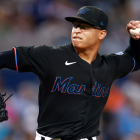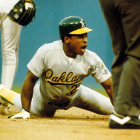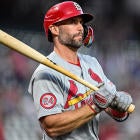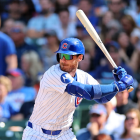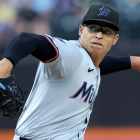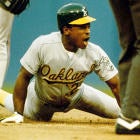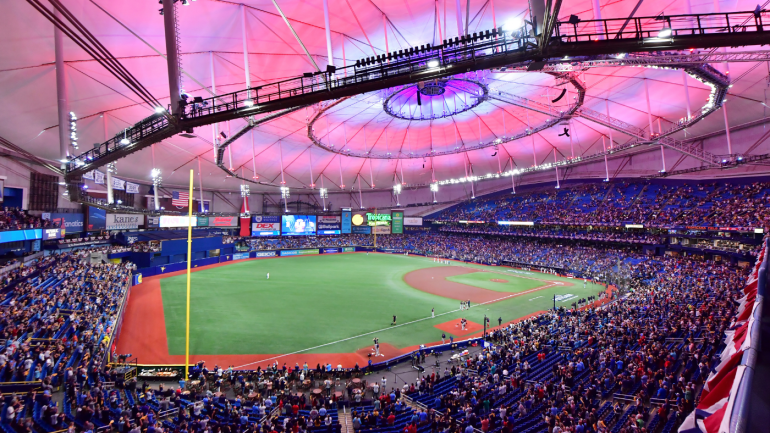
As the Tampa Bay Rays, the best team in the American League during the regular season, continue their playoff push, the team's highly placed executives can't resist detracting from it with continued talk of partial relocation.
Just prior to the end of the regular season, team president Brian Auld said this during in informal get-together with some local residents, per the Wall Street Journal:
"We've concluded that it's next to impossible that full-season baseball can succeed in Tampa Bay today."
Auld's remarks came as the Rays continue to push a "sister city" plan that would see the team play roughly half its games at their current home of St. Petersburg's Tropicana Field, where their lease runs through 2027, and then the remainder in Montreal, Canada, which hasn't been an MLB market since the Expos left for Washington, D.C. and rebranded as the Nationals in 2005.
The Rays had plans to promote the plan with ballpark signage during their postseason home games, but they abandoned the plan after heavy pushback on social media and elsewhere. The Montreal plan has been a stated aim of Rays owner Stuart Sternberg since at least 2019, and MLB around that same team granted approval for the Rays to explore further the idea that's fraught with complications.
As for Auld's remarks about the impossibility of making their current market work, it's a more time-tested part of the playbook of owners looking for a handout. The Rays play in a horribly dated ballpark that was never all that suitable for baseball, and that ballpark is in a location that's highly inconvenient for the those in the region's most densely populated areas. On top of all that, Sternberg's refusal to invest in the roster has led to personnel churn and a lack of lasting fan-and-star player relationships. Then, of course, there's the bizarre notion that a club can promote moving the team across a continent for half the season while also expecting their current local fan base to show up for games. It's a self-fulfilling lamentation on the part of owners -- it's calculated "anti-marketing" -- and it's almost certainly designed to get some municipality somewhere to pay for a new ballpark with public monies.
On top of all that, the Rays are revenue-sharing recipients, and they also get a stake of national media revenues. That in tandem with their chronically low payrolls mean the Rays are almost certainly profitable even before you take into account game-day revenues like ticket, parking, and concession sales.
They're of course free to continue promoting the Montreal plan, but no one is obligated to believe their stated reasons for it. Auld's latest risible, self-serving comments are a reminder of the latter.










